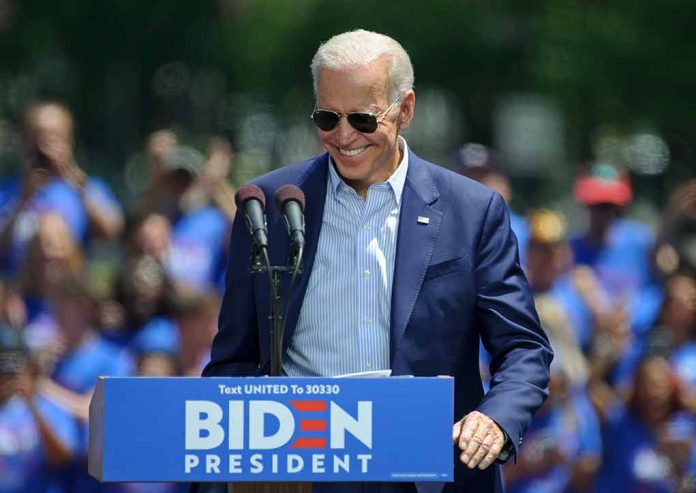
Federal appeals court allows Biden administration to expand Obamacare access to DACA recipients, sparking controversy and legal challenges.
At a Glance
- Federal appeals court grants stay, allowing DACA recipients to enroll in Obamacare
- Biden administration argues stay prevents disruption to open enrollment
- 18 states challenge the rule, citing potential increased taxpayer expenses
- Estimated 100,000 uninsured DACA recipients could sign up for coverage
- Decision contradicts Obama’s 2012 assurance that ACA wouldn’t include undocumented immigrants
Court Ruling Opens Obamacare to DACA Recipients
The U.S. Court of Appeals for the Eighth Circuit has granted a stay on a district court’s order, effectively allowing the Biden administration to proceed with its plan to extend Affordable Care Act (ACA) coverage to recipients of the Deferred Action for Childhood Arrivals (DACA) program. This decision overturns a previous ruling by District Judge Daniel Traynor, who had issued a preliminary injunction to prevent the implementation of this controversial rule.
The Biden administration’s rule, announced in May by President Biden and Vice President Harris, considers DACA recipients “lawfully present” for ACA enrollment purposes. This move has faced significant opposition from 18 states, including Alabama, Arkansas, Florida, and Texas, who argue that it will lead to increased administrative burdens and encourage more people to remain in the U.S. without permanent legal status.
A federal judge sided with Florida and 18 other states that challenged a Biden administration rule to allow Dreamers to access the Affordable Care Act, but an appeals court has issued a stay.https://t.co/rj3Yjo6e8q pic.twitter.com/dug7rdwCbI
— WUSF (@wusf) December 19, 2024
Potential Impact and Costs
The federal government estimates that approximately 100,000 uninsured DACA recipients might sign up for coverage under this new rule. However, the financial implications of this decision have raised concerns among critics. Some estimates suggest that enrolling these DACA recipients in Obamacare could cost American taxpayers around $300 million annually, with other projections indicating a potential annual burden of up to $2.8 billion.
Adding to the controversy, this decision stands in stark contrast to former President Obama’s 2012 assurance that illegal aliens would not be eligible for Obamacare. This contradiction has reignited debates about the scope and intent of the ACA, as well as the broader implications for immigration policy in the United States.
Enrollment Challenges and Extensions
While the DACA recipient enrollment has garnered significant attention, it’s worth noting that overall ACA enrollment numbers have seen a decline compared to previous years. New enrollments on healthcare.gov are currently at 730,000, a significant drop from the 1.5 million recorded last year. In response to these lower numbers, the Centers for Medicare & Medicaid Services has extended the enrollment deadline to December 18 for coverage starting January 1, and to January 15 for coverage beginning February 1.
The case, titled Kansas v. United States, No. 1:24-cv-00150, in the U.S. District Court of the District of North Dakota, remains ongoing. As legal challenges continue and the full impact of this decision unfolds, the intersection of healthcare policy and immigration remains a contentious issue in American politics.
Sources:
- Court Lets DACA Recipients Access Obamacare Plans
- Obamacare Sign-Ups Lag After Trump Election, Legal Challenges
- Appellate Court Allows Joe Biden to Open Obamacare to DACA Illegal Aliens














